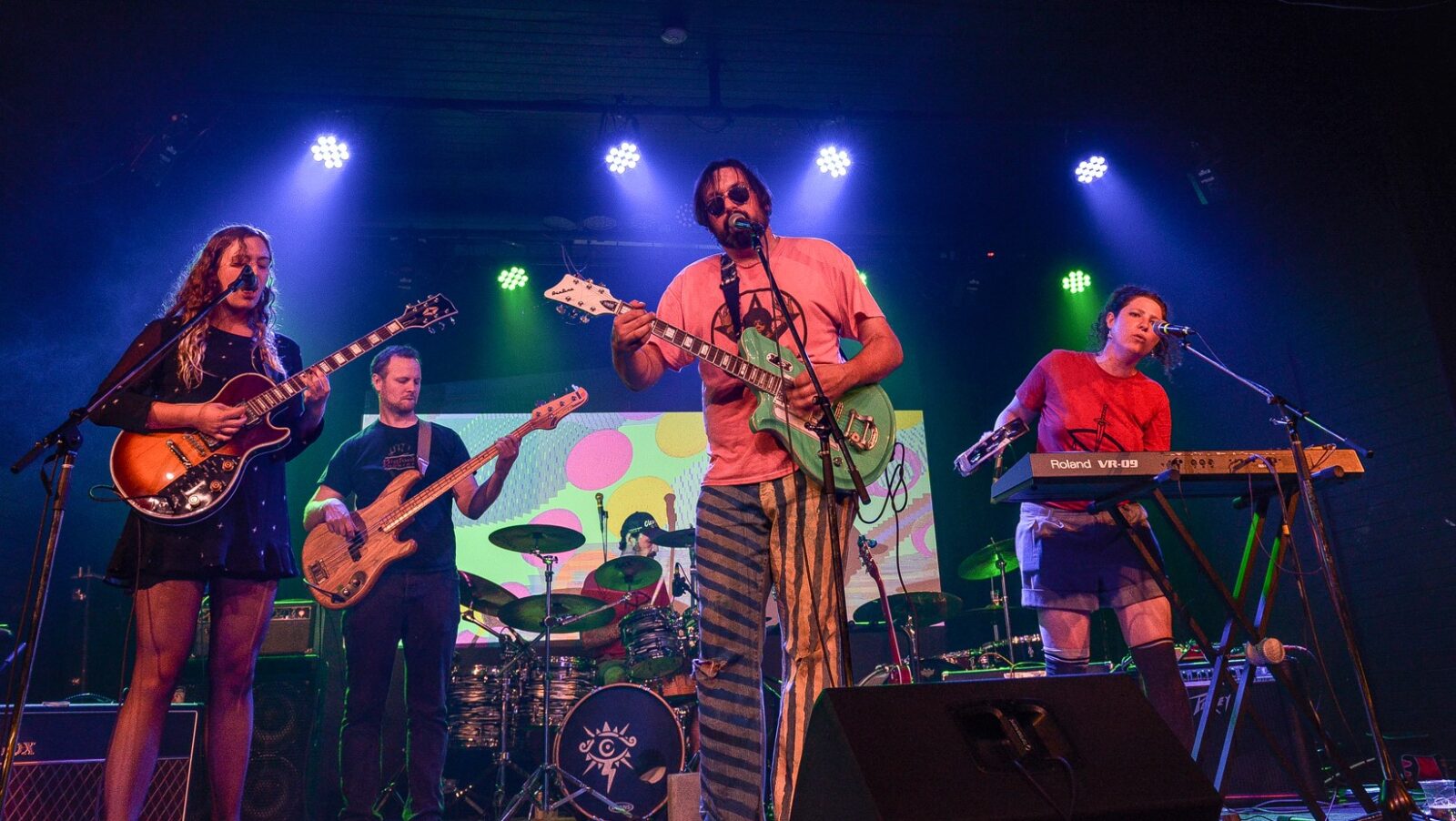The Great Speckled Fritillary | The Psychic Alliance | Interview
The Great Speckled Fritillary is a bombastic psychedelic freakbeat gnome pop from the gardens of East Vancouver.
The Great Speckled Fritillary is a semi-anonymous collective drawn from various members of popular local psych, punk and progressive rock groups. With a knack for abstract lyricism, dreamlike vocal harmonies and retrowave songcraft that evokes numerous outsider music genre touchstones and classic pop eras, the band has consistently produced ambitious, clever work culminating in their mammoth 28th track debut.
A metaphysical concept album exploring the passage of time across hours and seasons. ‘Her Majesty’s Secret Circus’ imagines a hidden world behind the movement of each passing moment, a gossamer realm of intricate detail and minute precision that guides the working of a larger whole. An occult treatise drawn from a radio heard in a passing dream of lysergic ballrooms, the album seems at once achingly familiar and shockingly strange, but never forgettable.
Interview with Shaun Lee, who’s an underground figure involved with many different projects including with The Psychic Alliance.
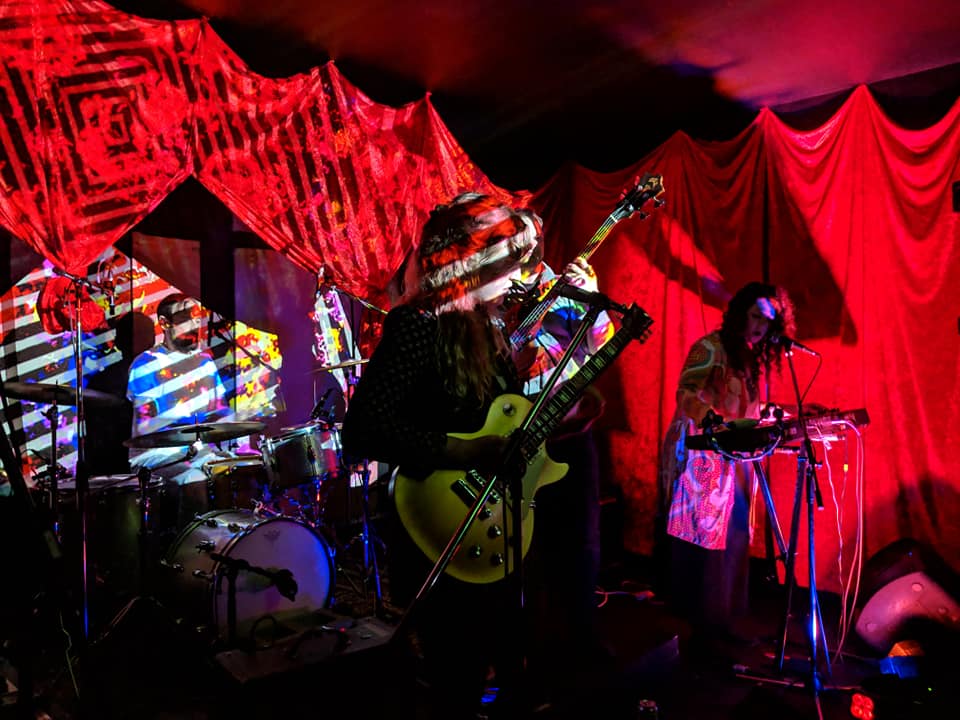
“I’ve always had really weird, vivid dreams, and I wanted to sort of use that as the basis for songwriting”
How did you first get interested in music and when did you first pick an instrument?
Shaun Lee: Ok, so there’s a few memories that stick out pretty clearly in my mind. My first encounter with an instrument was an old 1920’s piano that my granny had. I was about 5 years old and I remember trying to play along to a nature show about whales, just riding the sustain pedal and trying to make whale sounds, and thinking that it was about the best thing ever. Later, my mom picked up a cheap synthesizer from RadioShack, and it had all kinds of cool sound effects you could dial in, and I’d spend hours messing about with it. I remember for Halloween one year recording a tape full of “spooky sounds” on my tape recorder to play outside of our house for “ambience”.
When we were in grade school my friends and I were pretty much obsessed with recording stuff, like just sounds we’d come across in nature, and we’d also make our own radio shows and skits, basically anything weird or funny sounding, so that was kind of foundational I suppose. I have two really clear memories, one of my dad complaining that none of the videos on MTV made any sense, and then my mom saying that modern music was just “noise and curse words”, both of which sounded pretty great to me, haha.
I didn’t really get into conventional instruments until my sister bequeathed me her acoustic guitar when she left home, but unfortunately I suffer from a plethora of what you might call cognitive setbacks, so it really took me years to manage to plunk out anything resembling a conventional tune.
As far as how I first got into music as a formal concept, well, the first stuff I went really crazy for was like Chuck Berry, Buddy Holly, Fats Domino, stuff like that, because there was this show on TV here called The Golden Age of Rock and Roll, that was hosted by John Sebastien from the Lovin’ Spoonful, and it was just footage of 50’s and 60’s groups playing live. Seeing Chuck Berry, that was pretty much it for me, but it was also the first time I saw groups like The Mothers of Invention, The Amboy Dukes, The Box Tops, all kinds of great 60’s stuff that just sounded much more vibrant than a lot of what was on the radio at the time, which would have been when grunge was pretty much everywhere. That sort of gloomy aesthetic really didn’t appeal to me at the time.
I first got in touch with your music via The Great Speckled Fritillary, but you did much more and that’s why I would like it if we can start at the beginning. What was the first band you formed?
At the tail end of middle school my friend told me that his sister’s boyfriend was in a band where a guy just screamed into a microphone while other guys banged on pieces of metal. Around the same time I saw some footage of a Russian band smashing a bunch of television sets as a performance piece. Both of those sort of really appealed to me, because all the other bands at my school were really just doing covers of Green Day and Nirvana, sort of just parroting the alt rock bands from California and Seattle, which didn’t really hold much excitement for me. Also I couldn’t play an instrument for shit, and this seemed like a way to be included in music without having to cross the barrier of technical proficiency. So we formed our first band, Gojiro, which was really more conceptual than anything, like a cross between dadaism and nihilism. Over high school we recorded a handful of albums directly to cassette. I guess you’d consider it noise rock, kind of like Boredoms meets The Dead C. Our magnum opus was our third album, ‘We Sell Fun’ which we recorded on a Tascam Portastudio and distributed by cocooning the cassettes in inches of duct tape and then throwing them out the car window at people on the street, dropping them in the bottom of toilets, sliding them through random mailslots, just obnoxious stunts like that. I think we played a total of three shows and were booed off the stage at every one. Yet somehow it’s still the best thing I’ve ever done.
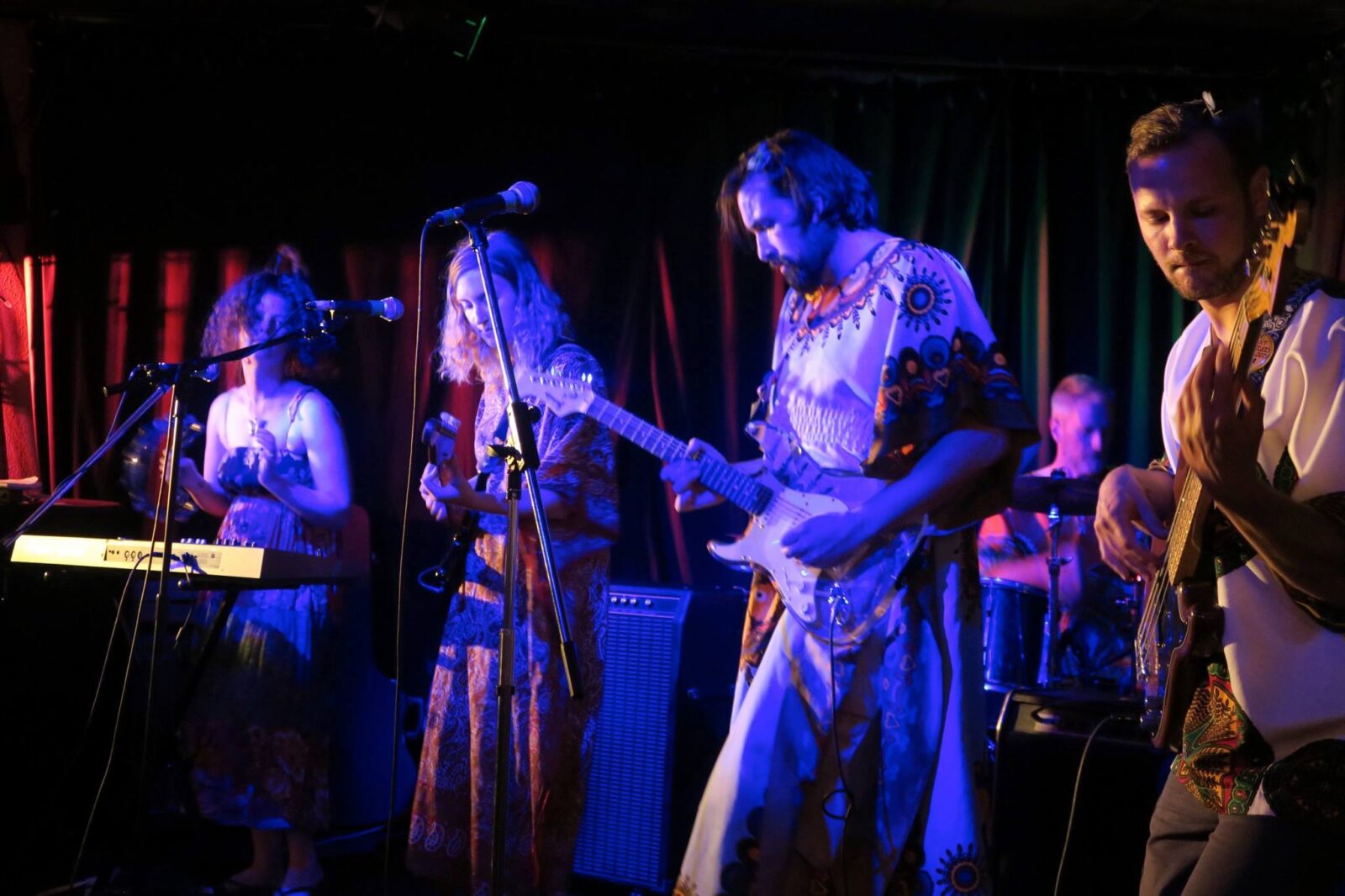
How did The Psychic Alliance form and what was the concept behind it?
So, at the time Gojiro was active, noise and experimental music was a pretty rare thing in our town. Then, around 2005 all of a sudden bands that had previously been making jam music and metal started becoming experimental all of a sudden. It was no longer very fun to be making experimental music because all of a sudden the market just got flooded. It seemed like a good time to start making rock and roll, and around that time I started revisiting all the psychedelic groups I’d been into when I was a teenager. No one was really doing anything super vibrant or colorful like that, all the rock bands in town were really obsessed with sounding like Joy Division and Television, so it seemed like a cool move to do something really vibrant and exploratory like that again. I formed a psych group called The Wormwood Orchestra, which became The Government of Canada who did a kind of gothic psychedelia. At the same time (2006 or so) I put together the first version of The Great Speckled Fritillary to explore more purely 60’s oriented psychedelia.
In Canada, there’s a kind of notorious TV psychic named Jojo Savard. I suffer from extreme insomnia, so I’d always be up at like 3 AM and these commercials for Jojo’s Psychic Alliance would come on. I just thought it sounded really sinister and evocative, so I’d saved it in the back of my mind. Having gotten some free studio time for the Fritillary to record their first single, the band sort of temporarily broke up in this big blowout the night before. So, I camped out in a chair outside the door of a keyboard player I knew and grabbed him as soon as he left his house the next morning. Together we drove around and rounded up a bassist and drummer and sort of press-ganged them into the recording session. We wrote a couple of songs on the spot, then recorded them pretty much as we were rehearsing them. The band was kind of instantly amazing and eclipsed anything else we were doing at the time.
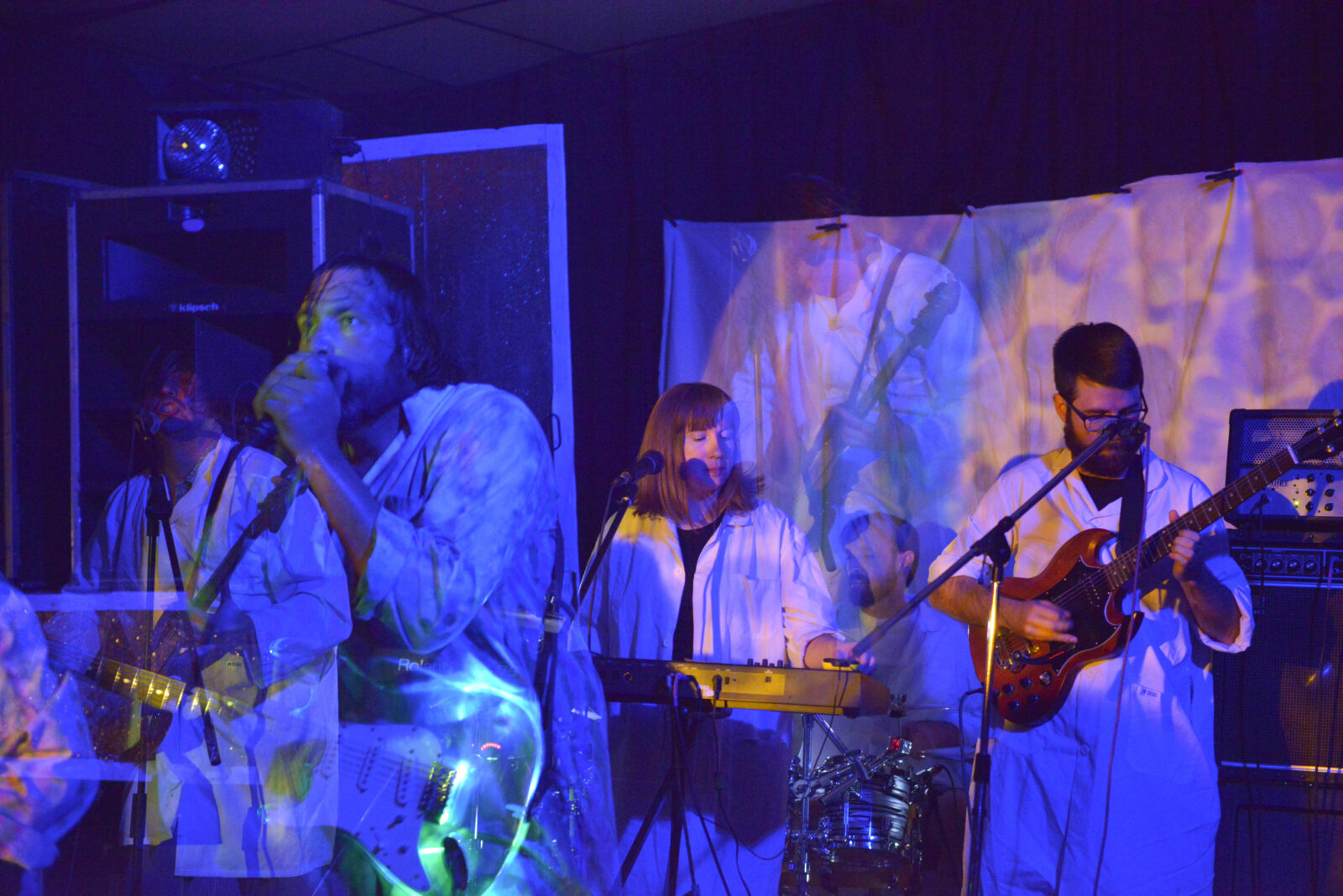
Conceptually, The Psychic Alliance is meant as a semi-anonymous collective, a sort of revolving crew of musicians. We’ve had up to ten members in the band at any given time, and sort of pride ourselves on never playing the same set twice. At this point in our history something like 30 members have passed through the band, although the core group for recording has been fairly static thus far. We try to make every show we play a kind of total assault on the senses, or at the least, a form of ritualized communal catharsis.
You released several albums, would you like to talk about the albums you’ve released?
So our first record, ‘Flux Capacitor’ was basically us trying to imagine Martin Denny’s Moog album as applied to a punk rock band, if that makes sense. Around that time the band was really into wearing suits and soaking ourselves in cheap cologne, really going for like a swingin’ London style bachelor pad mod thing, but with a sprinkling of futurism added for good measure.
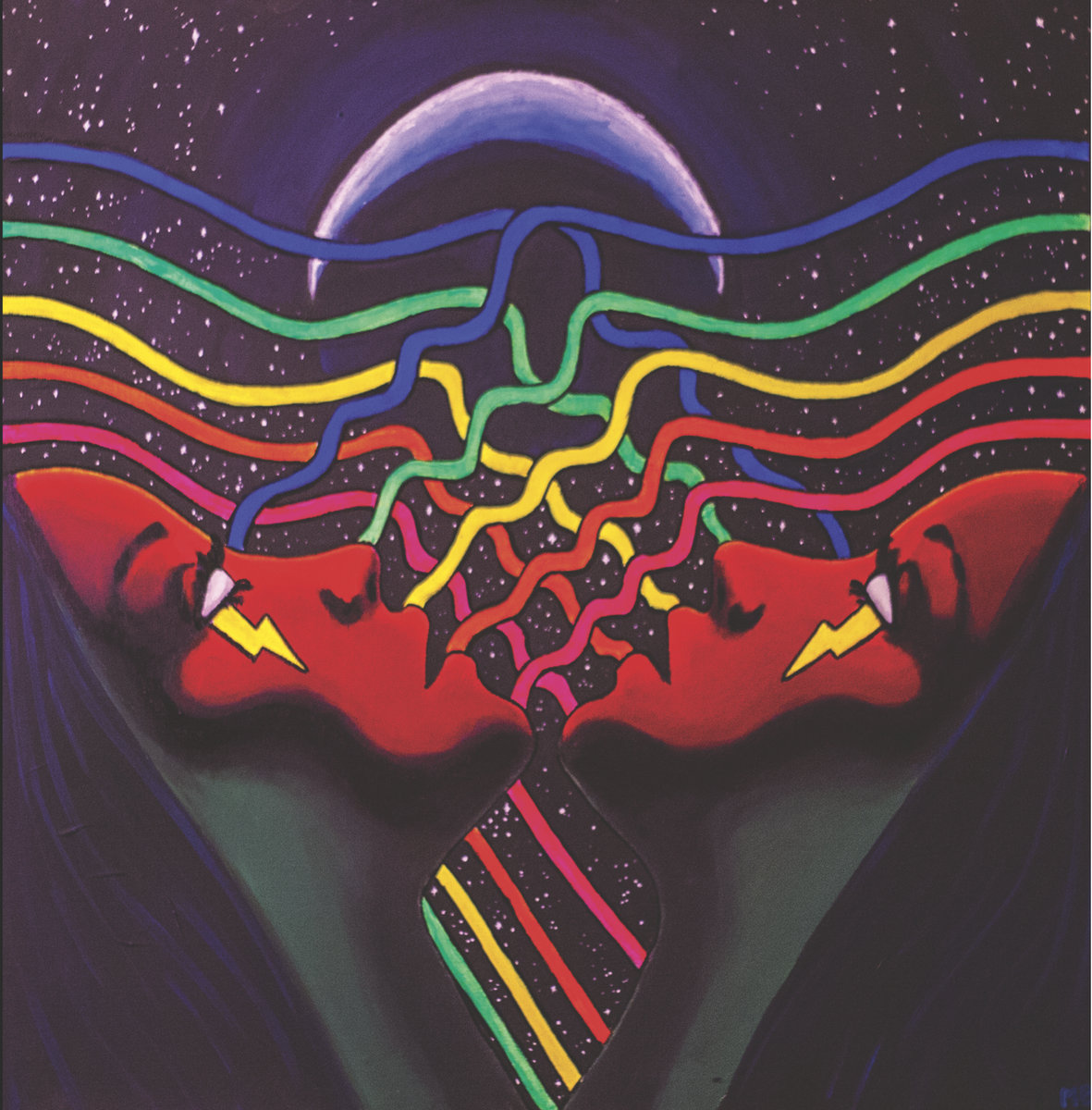
Our second album, ‘Psychedelic Hamster’ was a bit of a response to the sudden explosion of psych bands at the time. Like, it seemed like every single band had suddenly added psych as a descriptor on their Bandcamp page. So we went out of our way to make a really obnoxious, dry sounding record that fans of modern psych would be totally turned off by. The back half of the record is a cover of an unreleased Gojiro EP called ‘Dinosaurs, That is Oblivion’, which is basically just us taking the piss out of conventional rock music.
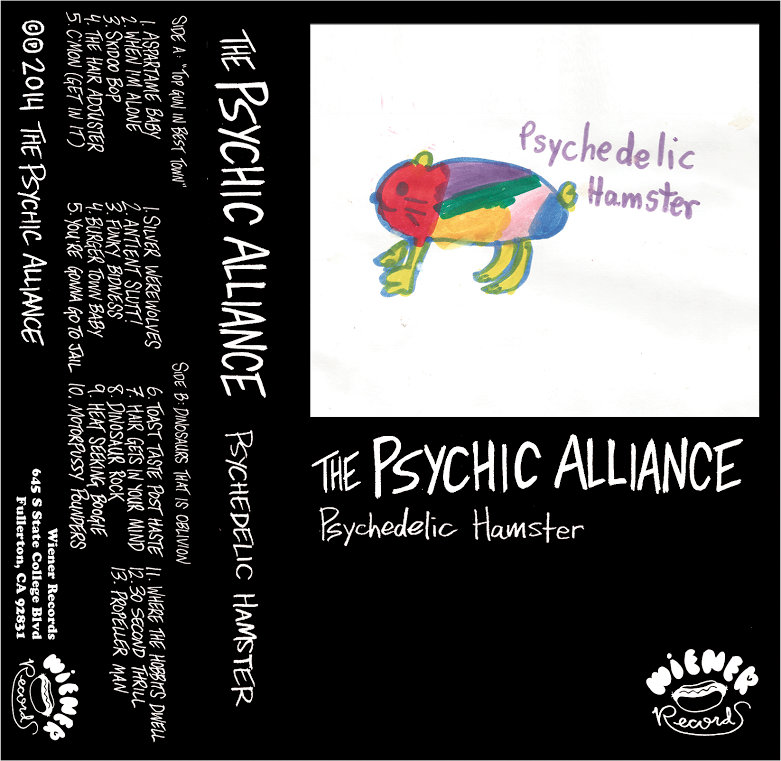
On our third LP, ‘Evil Against Evil’ we basically realized that if we put our songs into a minor key, for whatever reason, audiences really responded favorably. Maybe it’s something to do with the amount of rainfall in Vancouver, I dunno. So we made a psychedelic goth record, and even went as far as scheduling our final studio session for Halloween night, and lo and behold, it’s like the only record we made that anyone cares about even a little. At the same time, it’s a totally cursed record, and it’d be way beyond the scope of this interview for me to detail all the fucked up craziness surrounding it.
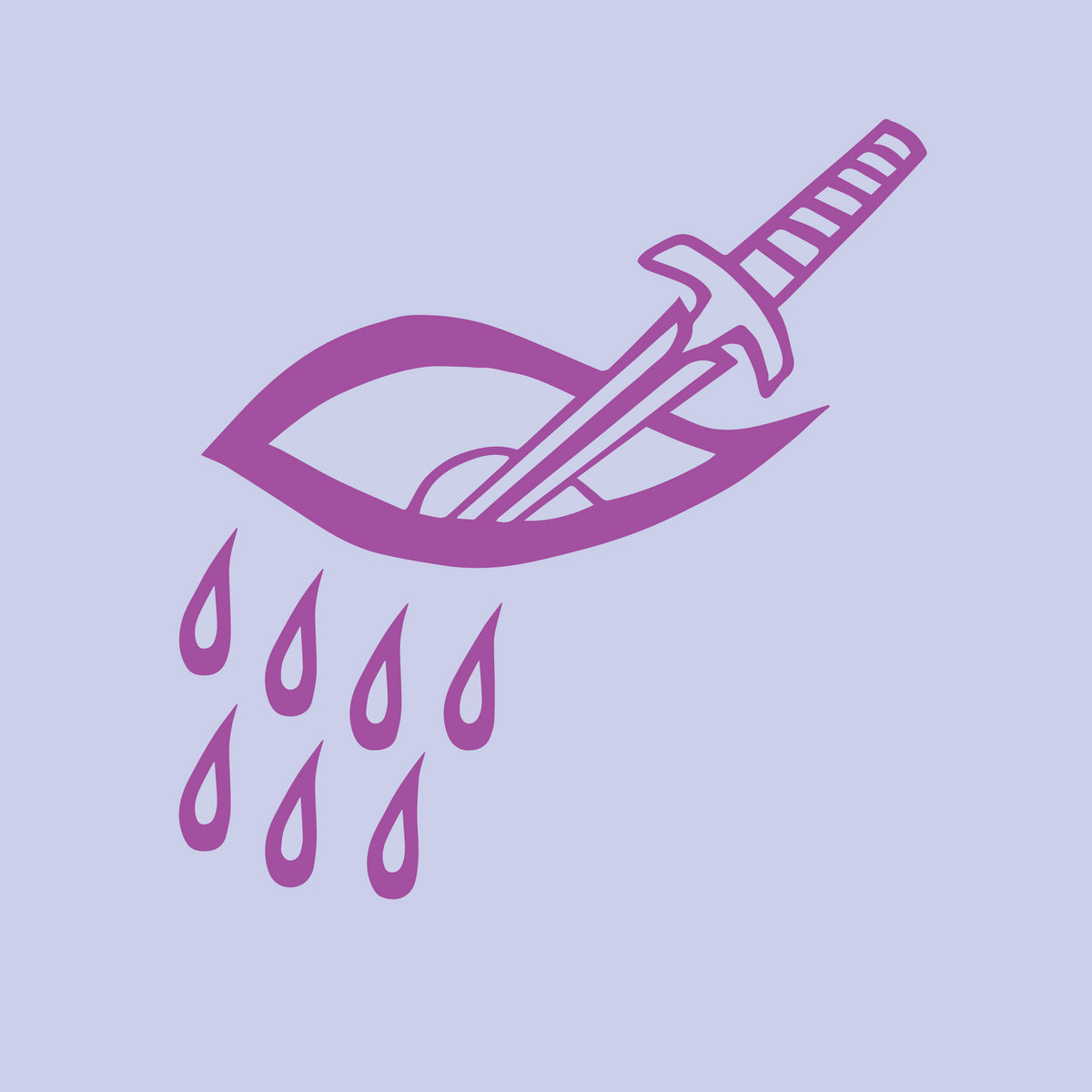
Our fourth album, ‘Reptile World’ only got made because way back when we first started, our keyboard player at the time had a huge freakout and wound up totally sabotaging our first attempt at recording an EP, to the point that we didn’t wind up releasing anything until like three years later. Our guitar player still had some of the home-recorded stems, so we thought it would be a cool project to finish that EP as if we were still a greenhorn band recording in our garage. Over the course of putting the EP back together, we wound up writing a ton of new stuff, as well as digging up yet another batch of unreleased Gojiro tunes, so the EP became a full length album, and we wound up feeling really silly about home-recording it because it has some of our best songs and they sound like they got recorded in a shoebox, haha.
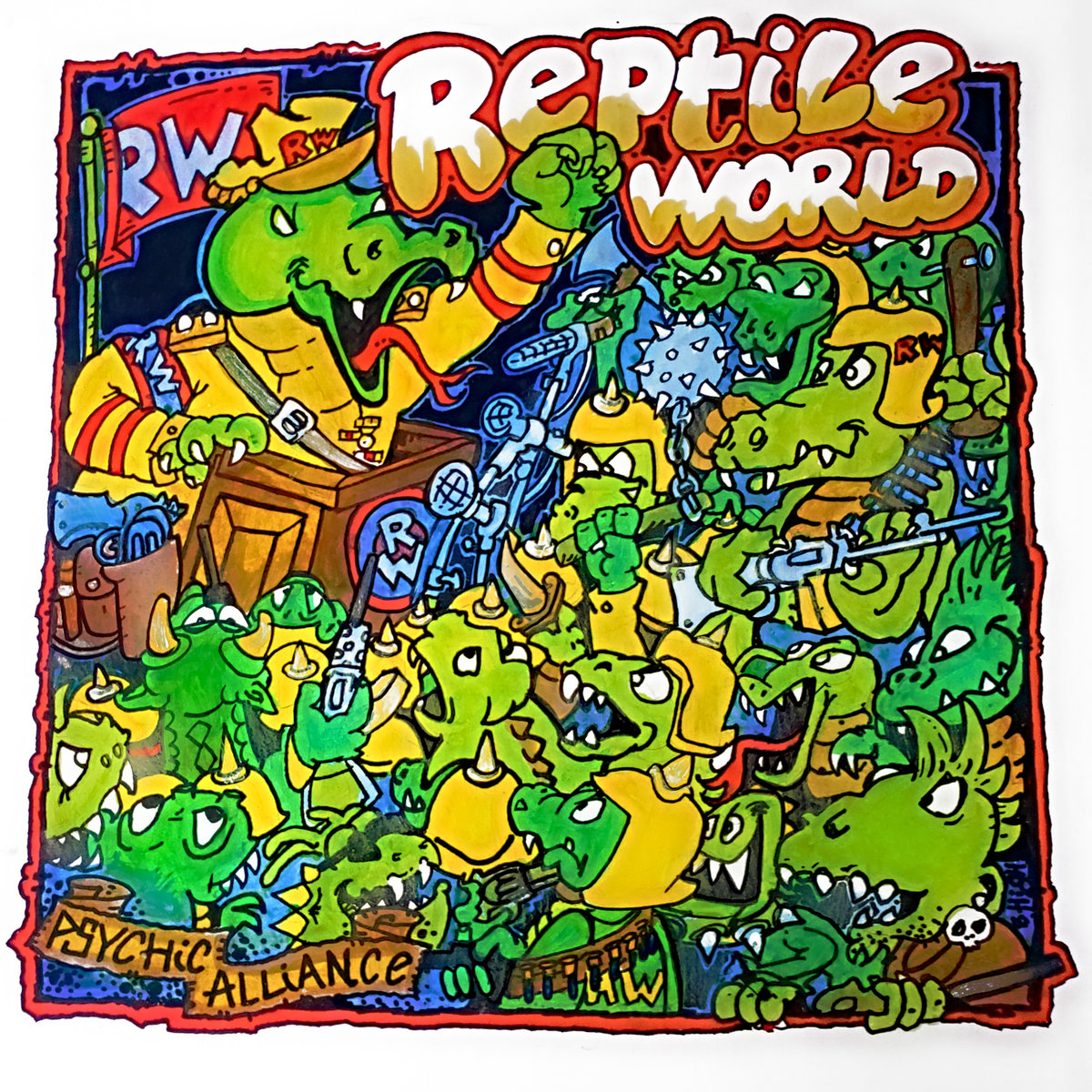
For ‘Alter English’ we wanted to make a very classic style British sounding record. I’d just come back from a six month sabbatical in England, basically getting in touch with my Yorkshire roots, and it seemed like a cool idea to honor that. So, basically just delved hard into Kinks, Oasis, The Who, Small Faces, all that kind of stuff and recorded it all live off the floor with really minimal overdubs. Our regular producer, Felix Fung is a huge music nerd too and is pretty much always up for trying to replicate that old-school “live off the floor” work ethic, and I think this album sort of represents the apex of both our sensibilities in tandem.
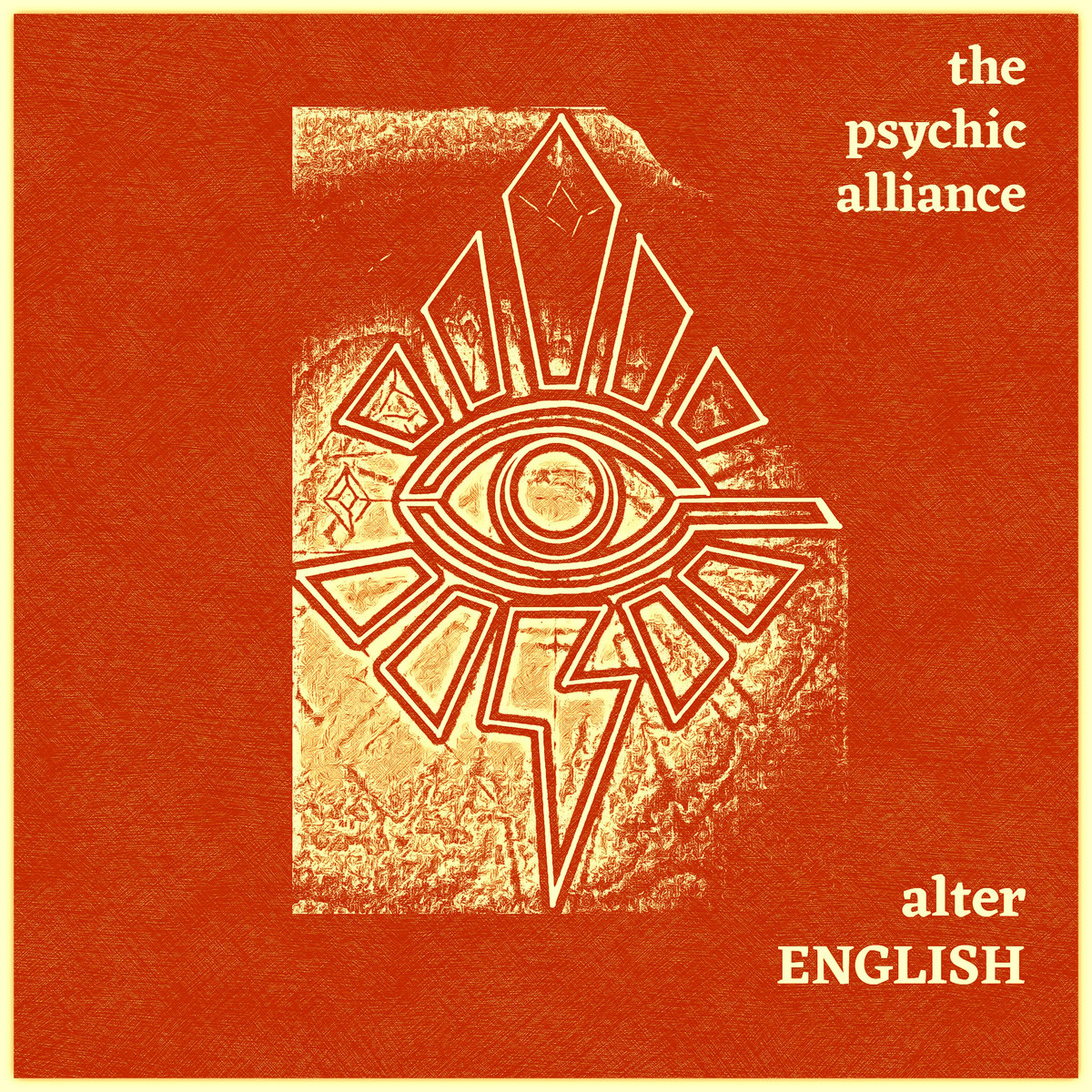
Your latest was ‘Alter English’. Is the band still active and are you working on something new?
Very much so! I’ve moved back to Calgary from Vancouver, so the lineup has changed significantly again. The new album is fully written and I’ve currently got something like 18 songs fully orchestrated as demos. We’re heading into the studio this week to bang out a single. Stylistically the band is really focused on vocal harmony right now, and we’re working on more orchestrated, production oriented stuff, basically leaning into sounds like ELO, late 70’s Bowie, Roxy Music, stuff like that. Double keyboard players (including Reneé from the Fritillary) and a lot more textural stuff, although we still have a fair share of punchy rock and roll tunes.
What about The Handle? That’s a fantastic group that released a truly wonderful 2016 album, ‘Last Stop, Scroadsville!’. Tell us about it.
Ok, so my artistic “foil” in Calgary is my friend Danny Vescarelli who is also the cousin of Reneé from Speckled Fritillary. Right around the time Psychic Alliance was forming, he was also putting together a “same coin, different side” band called Deadhorse, which went on to become Devonian Gardens, a great little neo-psych group that managed to put out an awesome LP on ‘Beyond Beyond is Beyond’. Their keyboard player, Marie is also in the current lineup of Psychic Alliance, and was a past member of the Fritillary. Anyway, around 2007, we were the only two bands playing dedicated psych rock in Calgary, so we became natural friends, played our first tour together, that kind of stuff.
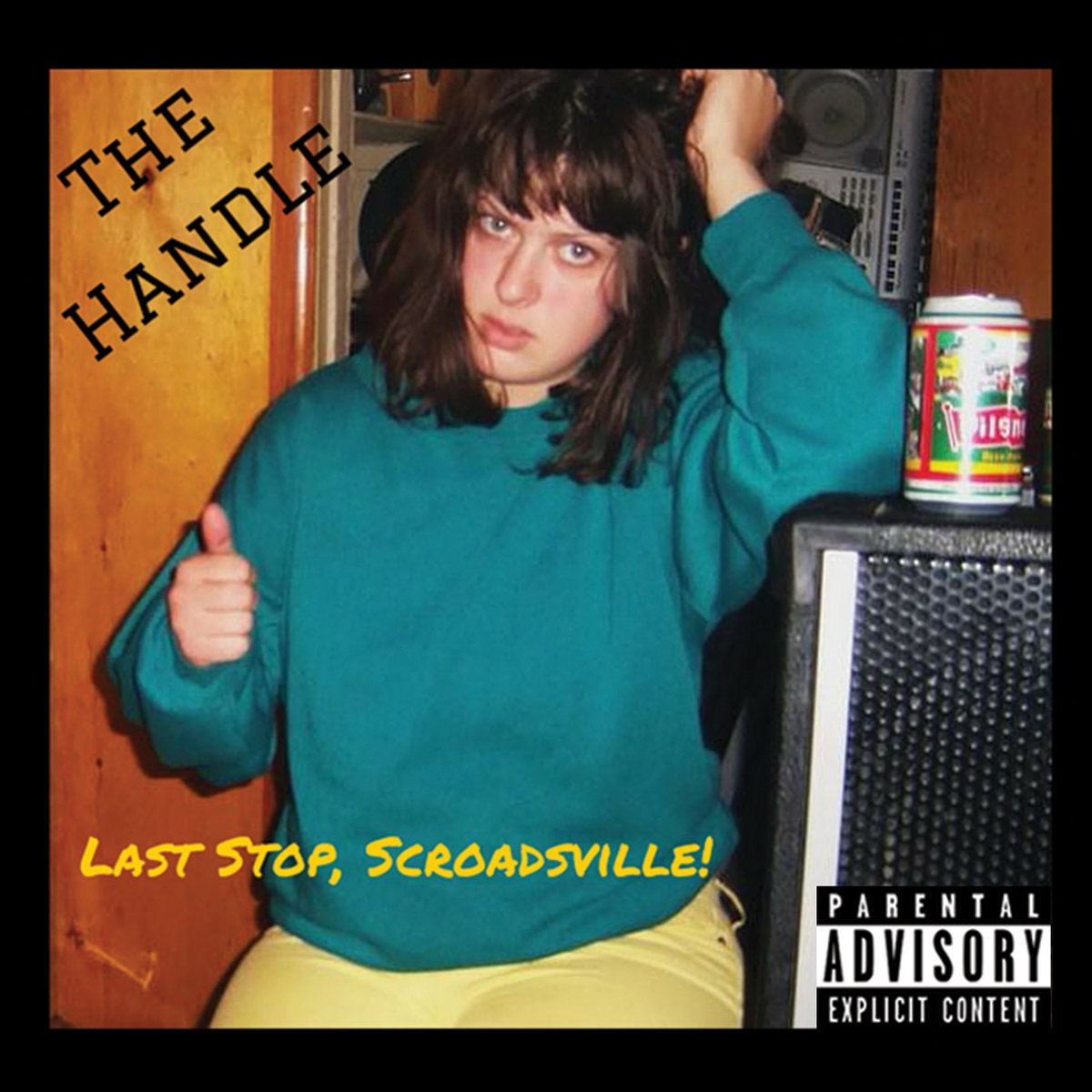
We’d been going to this weekly jam session at this dive bar called Vans pub, where we quickly discovered that we both shared an affinity for what we termed “haggard country”, which is basically like really down-on-your-luck kind of washed out vibes, the sort of working class aesthetic that was really doing it for us at a time when no one was exactly rolling in dough.
So, over the course of the first Deadhorse/Alliance tour we’d basically break out the guitars around the campfire and come up with these hurting country tunes to sort of amuse ourselves and take a break from trying to be all psychedelic and experimental. Members of both bands would sit in with us and fill out the lineup, and eventually The Handle started to become this kind of juggernaut that in some ways actually started to outshine our so-called serious projects.
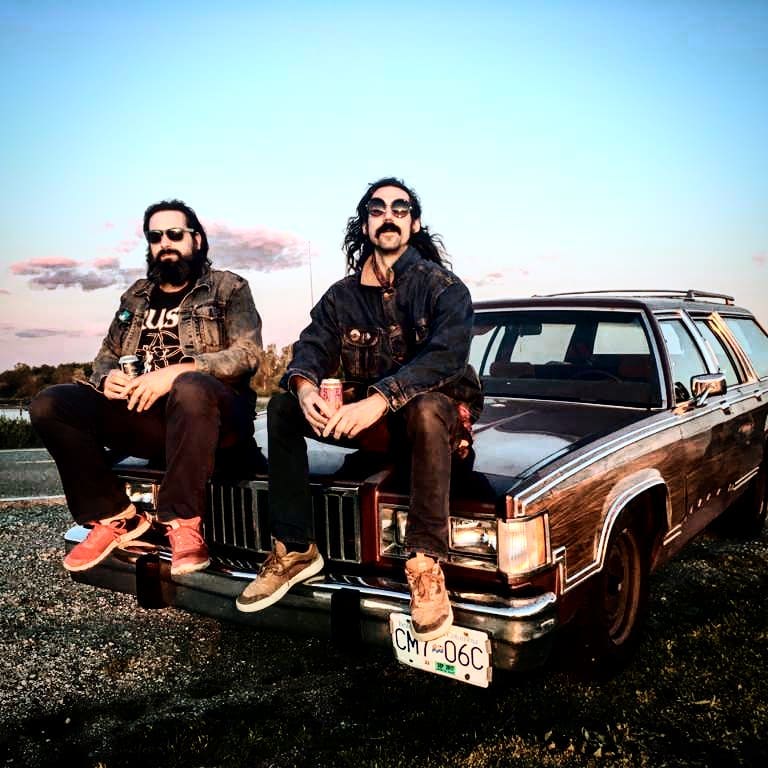
A few years later, Danny lucked into a bunch of studio equipment, so I took the bus back to Calgary to record The Handle album as the inaugural test run for his studio, Country Rock Heaven. The whole thing was tracked in about ten hours, with a revolving cast of local musicians, and a ton of cheap liquor. We’ve recorded a couple of singles there since then and have a new single in the works right now that’ll hopefully be out some year. Danny actually makes legitimate country-psych now with his band Liquor Mountain, but I’m continually trying to pull him back down into the gutter.
Can you elaborate on the formation of The Great Speckled Fritillary?
So The Great Speckled Fritillary actually predates most of my bands, but took forever to actually wind up on record. It started years ago before the formation of The Psychic Alliance. I’ve always had really weird, vivid dreams, and I wanted to sort of use that as the basis for songwriting. So I’d basically take stuff that would come to me in dreams and turn it into songs, and after a while I started to notice that there were some distinct thematic threads running through all of them, which formed the basis for this sprawling work that I referred to as ‘Her Majesty’s Secret Circus’. The album was pretty much fully written before it occurred to me to form a band around it. I’d been in a psychedelic band called The Modern Arts and Crafts with Marie from Deadhorse/Psychic Alliance, and when that broke up we started The Great Speckled Fritillary with Natasha, the keyboard player from my band The Government of Canada. It was an acoustic side project that was inspired by Tyrannosaurus Rex (the early Marc Bolan acoustic band, not the dinosaur). Marie and I kept it going for years as a duo, before I moved away to Vancouver.
In Vancouver, I was sitting around waiting for the other members of The Psychic Alliance to move out, and wound up meeting our bassist, Craig Stensrud and really connecting taste wise on a bunch of levels. At the same time, I realized that my girlfriend, Reneé, had been keeping secret the fact that she was a pretty insane keyboardist and vocalist, so since I had this massive unused catalog of tunes in my back pocket, we decided to start a band with Ben, the drummer from Psychic Alliance at the time. We’d just met our friend Madison, who is actually a classically trained piano prodigy, but managed to convince her to learn guitar for the band, which she pulled off in like a week, eventually becoming one of the best guitarists I know. So, The Great Speckled Fritillary managed to morph from an acoustic folk/psych side project into a heavier electric psych band fairly rapidly, and sort of grew alongside The Psychic Alliance, with members of that band crossing over back and forth, and Craig and Madison eventually going on to form the prog band Yep.
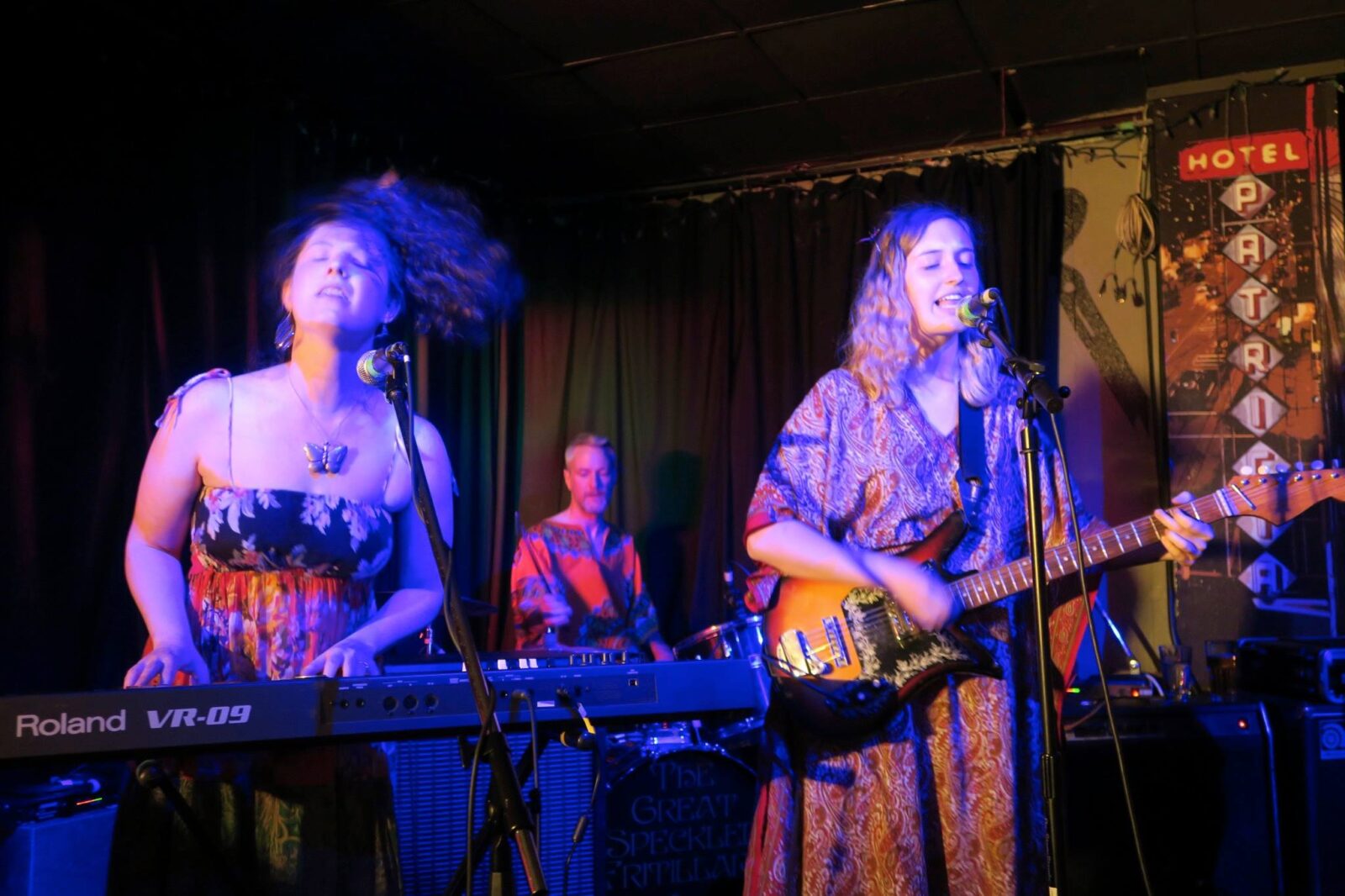
Tell us about a recent limited edition double cassette release of your first album.
We’d released cassettes before (both The Handle album and the second Alliance record) and found it a really fun format, and one that we could reliably mail to overseas fans without incurring the massive costs and breakage associated with vinyl. I’d originally planned to put the Fritillary debut out on vinyl, but when Covid 19 hit, aside from really killing us financially, vinyl, at least in Canada, became really tough to produce. Last I checked, the wait list was hovering around 10 months at best. I’d previously formed an imprint called Round Table Rekords to put out the first Alliance vinyl, and in Calgary, some friends had expressed interest in putting together a small imprint to do little cassette releases, so it seemed like a great time to test the waters and it became the first physical release on Haushöme Records, which is named for a little bungalow where a bunch of Calgary psych bands, including Deadhorse/Devonian, Psychic Alliance and Fritillary used to live and practice.
What were some of the artists you enjoyed early on and consequently influenced the music you make?
Probably the single biggest influence on everything I’ve done, and particularly the Fritillary stuff was the Syd Barret record ‘The Madcap Laughs’. Aside from that, when I was about 15 I found some old 7 inch records in my basement that included ‘Let Your Hair Hang Down’ by the Tremeloes, which I’d still say is my favorite psych record of all time and was a huge influence on me. But I’d probably never have given any serious thought to forming a band if it wasn’t for ‘Soul Discharge’ by The Boredoms, ‘The Mongoloid Years’ by Devo and ‘Cosmic Tones For Mental Therapy’ by Sun Ra.
Would you like to talk about your guitar and pedals you employ?
For a guy in a psych band, I’m such a cheapskate when it comes to pedals. I have a 70’s Dunlop Crybaby wah pedal that is barely living, a Danelectro Axle Grease echo box that I bought for five bucks and a Boss overdrive that I’ve had since high school. Aside from that, I really prefer to derive my tones directly from my amplifier, which for recording is a 1972 Traynor YRM 1 Reverb Master typically, although I also use a newer Traynor combo for its fuzz tone a lot. They’re great little Canadian amps that are virtually indestructible.
I’m a left-handed guitarist, so vintage gear is really tough for me to come by. I use an American 90’s Stratocaster for the more jangly rhythm stuff and atmospheric tones, a plastic body Airline semi-hollow clone by Eastwood for gnarlier fuzz leads, a Gretsch P90 for anything remotely Brit or shoegaze sounding, and a Galveston plexi-strat from Korea which has a pretty obscene buzzsaw sustain to it.
Let’s end this interview with some of your favourite albums. Have you found something new lately you would like to recommend to our readers?
I’ll take this opportunity to flog some Canadian releases. I think your readers would particularly like the artist Roy. His album ‘Roy’s Garage’ in particular stood out to me as probably some of the most legitimate modern psychedelic I’ve heard in a long time. In a blind test, I’d have a hard time not imagining it was a long lost album by like The Electric Prunes or The Seeds.
On the more experimental tip, the album ‘T.O.N.T.O.’ by Robin Hatch is possibly the most significant electronic music record I’ve heard in a long time. Here in Calgary we have our National Music Center, which is a repository for some amazing historic keyboard instruments including The New Original Timbral Orchestra, a Canadian crafted behemoth containing just about every classic synth module ever made. There’s only one in existence, and she’s the first person to make an album or perform live with it in decades, and it’s a stunning record, just really well-orchestrated and out there, and I love that she’s continuing in the tradition of women composers totally dominating the synth field.
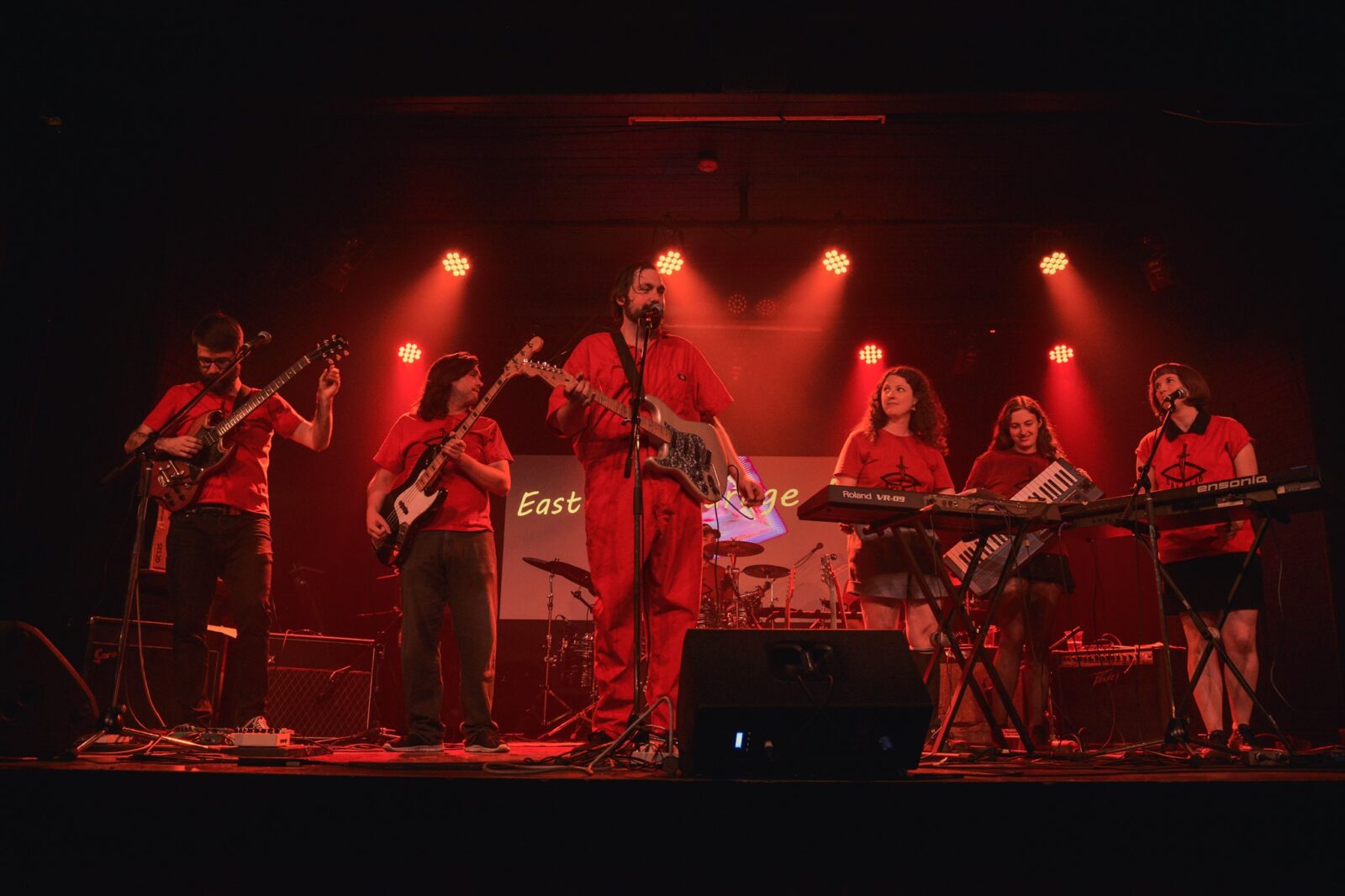
Thank you for taking your time. Last word is yours.
“Be excellent to each other.” Thanks again for taking the time to ask about our work, we really appreciate it!
Klemen Breznikar
Headline photo: Great Speckled Fritillary at Garagefest | Photo by Alisha Weng
Great Speckled Fritillary Facebook / Instagram / Twitter / Bandcamp / YouTube
Haushöme Records Facebook / Instagram / Bandcamp / YouTube

